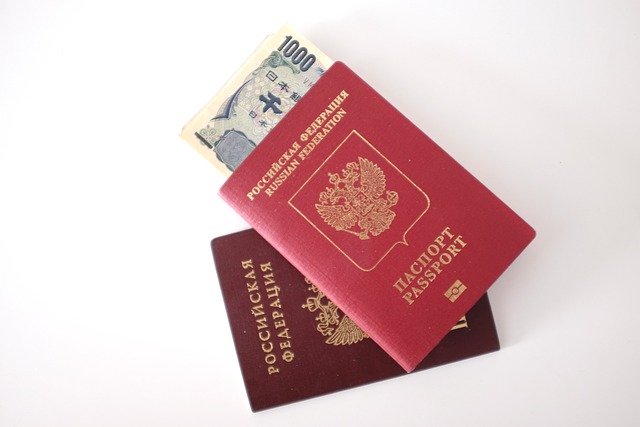Fraudulent vehicle sales pose significant risks to buyers who might purchase cars with hidden issues…….
Category: VIN Validation
Understanding VIN Validation
Vehicle Identification Number (VIN) validation is a critical process that ensures the authenticity, history, and compliance of a vehicle with regulatory standards. A VIN is a unique identifier used by manufacturers to record essential information about a specific vehicle. This information includes details such as the model year, make, body style, engine type, and production number, among others. VIN validation involves verifying this data against databases to confirm the vehicle’s identity, history, and condition. It is a fundamental aspect of vehicle management that impacts various stakeholders, including manufacturers, buyers, insurers, and regulatory bodies.
The VIN is composed of 17 characters, which are a combination of letters and numbers. Each segment of the VIN carries specific information, such as the country of manufacture, the manufacturer’s name, the vehicle description, the production number, and the check digit for validation purposes. The process of validation ensures that the VIN is correctly formatted and encodes data that accurately reflects the vehicle’s attributes.
Global Impact and Trends
The importance of VIN validation transcends borders, as it is a universal standard recognized by various countries. Its impact is significant in global trade, where vehicles are shipped across continents, and in ensuring road safety worldwide. The trends shaping VIN validation include the increasing digitization of vehicle data, the integration of advanced technologies like blockchain for secure data handling, and the growing emphasis on sustainability and electric vehicles (EVs).
Developed countries with sophisticated automotive markets have stringent regulations and frameworks for VIN validation. In contrast, emerging economies are adopting VIN validation practices at a faster pace due to globalization and the influx of imported vehicles. The international community’s cooperation in maintaining consistent VIN validation standards is crucial for trade facilitation and consumer protection.
Economic Considerations
VIN validation plays a pivotal role in the automotive industry’s economic landscape. It influences market dynamics by affecting vehicle pricing, insurance costs, and resale values based on the vehicle’s history and authenticity verified through VIN checks. Investors and financial institutions rely on this data to assess risks and make informed decisions.
The cost of VIN validation services can vary depending on the service provider and the level of detail required. Some companies offer free basic VIN checks, while more comprehensive reports might come at a premium. The economic impact of VIN validation is also seen in its role as a tool for combating fraud, reducing the prevalence of stolen vehicles, and ensuring that recalled vehicles are identified and repaired, thereby enhancing consumer trust and market integrity.
Technological Advancements
The advancement of technology has significantly improved VIN validation processes. The integration of artificial intelligence (AI) and machine learning algorithms enables more accurate and efficient data analysis, pattern recognition, and anomaly detection. These technologies can cross-reference VIN data with vast databases to identify discrepancies or flag potential issues that might indicate fraudulent activity or non-compliance with regulations.
The future of VIN validation lies in the integration of cutting-edge technologies such as blockchain for tamper-proof record-keeping, AI for predictive analytics, and IoT for real-time monitoring of vehicle data. These advancements promise to make VIN validation more robust, reliable, and secure.
Policy and Regulation
The governance of VIN validation is influenced by policies and regulations established at both national and international levels. At the international level, organizations like the United Nations Economic Commission for Europe (UNECE) have regulations that member countries must adhere to regarding VIN standards. These regulations ensure consistency and reliability in VIN data across borders.
At the domestic level, individual countries have their own sets of laws and guidelines that govern vehicle identification and validation. Compliance with these regulations is mandatory for all vehicles sold within a country’s jurisdiction. Non-compliance can lead to penalties, seizure of vehicles, and legal action against offenders.
Challenges and Criticisms
VIN validation faces several challenges, including the risk of data breaches, the potential for fraudulent activities, and the complexity of maintaining up-to-date databases that are accessible and interoperable across different jurisdictions. Additionally, there are criticisms regarding the lack of standardization and the varying levels of enforcement across different countries.
To address these challenges, stakeholders must collaborate to establish global standards for VIN validation. Investment in cybersecurity measures and the adoption of secure technologies like blockchain can mitigate data breaches and fraud. Regular audits and updates to databases are essential to maintain their accuracy and integrity.
Case Studies
One notable case study involves a major car manufacturer that implemented a VIN validation system to authenticate vehicles entering its inventory. This initiative led to the discovery and removal of counterfeit parts, significantly reducing liability risks and improving product quality. Another case study highlights a country’s success in reducing car theft by 20% through a robust VIN validation system that integrated with law enforcement databases.
Future Prospects
The future of VIN validation is poised for growth, especially with the advent of EVs and the increasing complexity of vehicle technologies. The demand for more sophisticated validation systems will rise as vehicles become more connected and autonomous. Emerging trends such as the use of VIN data for insurance telemetry and predictive maintenance are areas of significant interest and investment.
Strategic considerations for the future include the need for international cooperation to harmonize VIN validation standards, the integration of VIN data with vehicle registration processes globally, and the continuous innovation in technologies that support VIN validation.
Conclusion
VIN validation is a critical component of the global automotive industry, influencing economic activities, ensuring market integrity, and enhancing consumer safety. As vehicles evolve and technologies advance, so too must VIN validation systems adapt to maintain their relevance and effectiveness. The collaborative efforts of governments, manufacturers, technology providers, and consumers will shape the future of VIN validation and its impact on the automotive landscape.
This comprehensive guide provides insights into the critical role of Vehicle Identification Number (VIN) validation in today’s global automotive industry. It highlights the importance of standardization, technological advancements, and international cooperation in maintaining a robust system that protects consumers, ensures market integrity, and drives economic growth. As the industry continues to evolve, VIN validation will remain a cornerstone in safeguarding the interests of all stakeholders involved.
VIN Decoding: Unveiling Car Secrets for Smart Purchases
The 17-character Vehicle Identification Number (VIN) serves as a global code for cars, encapsulating…….
Uncover Car Secrets: VIN Checks for Problem-Free Driving
Before buying a car, perform a Vehicle Identification Number (VIN) check to uncover its history, inc…….
Skip Motor Vehicle History? Avoid Car Buying Nightmares
When buying a car, thorough checks like Motor Vehicle History Validation and VIN lookup are essentia…….
VIN Verification: Uncovering Used Car Truths to Avoid Hidden Headaches
The Vehicle Identification Number (VIN) is a 17-character code globally unique to each car, providin…….
VIN Verification: Building Trust in Car Purchases
When buying a vehicle, thorough verification is crucial to avoid costly surprises. Tools like VIN au…….
VIN Accuracy: Shield Against Stolen Vehicle Frauds
Vehicle Identification Numbers (VIN), a 17-char code tracking cars since 1954, reveal their history…….
VIN Verification: Building Trust in Car Purchases
Building trust in auto purchases is vital for buyer satisfaction. Discrepancies between advertised c…….
VIN Check: Uncover Car History, Avoid Post-Purchase Surprises
A VIN search tool equips car buyers with comprehensive vehicle history information, aiding in inform…….
VIN Verification: Building Trust in Car Purchases
When buying a car, trust is essential for safety and peace of mind. Verifying a vehicle's histo…….









